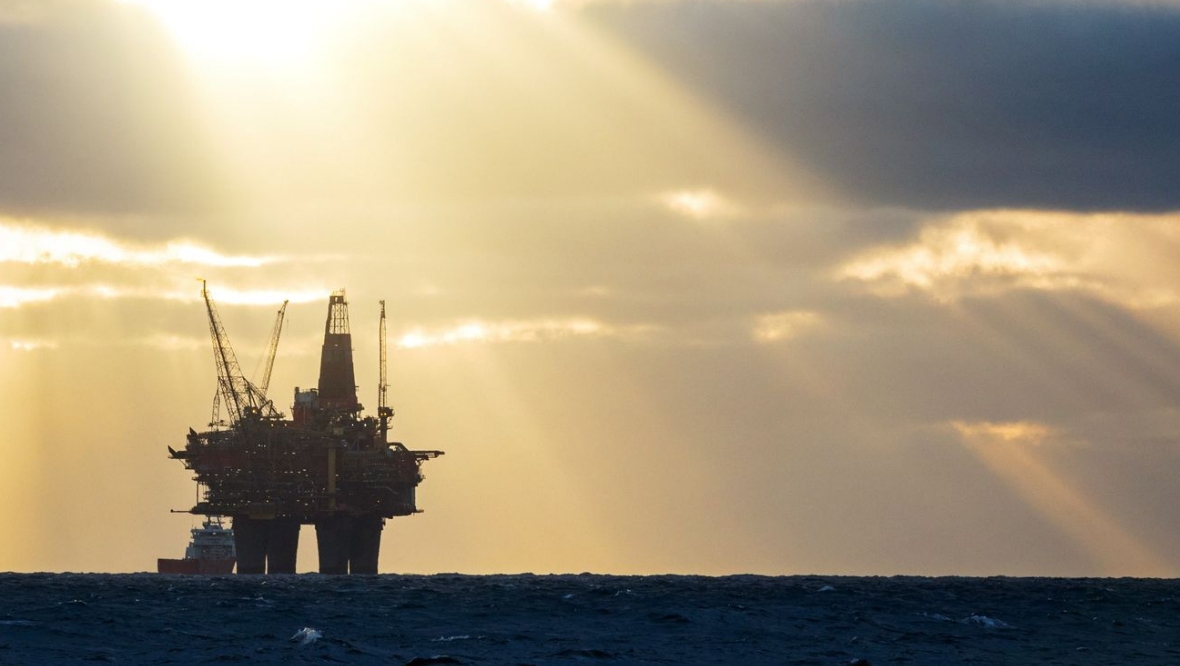The UK Government has published guidance that could see two controvesial North Sea oil and gas fields given the go-ahead.
Earlier this year, a court ruled two fields – Rosebank and Jackdaw – could not start production until the environmental impact of burning the oil and gas from the fields had been assessed.
The new guidance will only impact those developments that already have licences, with the UK Government saying its committed to not granting new drilling licences in the North Sea.
During a visit to the Port of Aberdeen on Thursday, energy minister Michael Shanks announced that offshore developments – such as the Rosebank and Jackdaw fields in the North Sea – will once again be able to submit applications to develop already-licensed oil and gas fields.
The announcement is part of new guidance from the UK Government in response to last year’s landmark Supreme Court ruling for the North Sea.
The Finch judgement ruled that the global environmental effects of burning oil and gas are an inevitable consequences of extraction projects.
It meant that for the first time, North Sea operators were required to consider the impact of burning extracted oil and gas in environmental impact assessments.
In practice, the UK Government put applications to extract oil and gas in already-licensed fields on hold following the ruling.
After Thursday, that applications process will be relaunched.
When deciding on an application, the UK Government will consider the significance of a project’s environmental impact, while taking into account and balancing relevant factors on a case-by-case basis – such as the potential economic impact and other implications of the project.
“This new guidance offers clarity on the way forward for the North Sea oil and gas industry following last year’s Supreme Court ruling,” Shanks said.
“It marks a step forward in ensuring the full implications of oil and gas extraction are considered for potential projects and that we ensure a managed, prosperous, and orderly transition to the North Sea’s clean energy future, in line with the science.”
He added: “We are working with industry, trade unions, local communities and environmental groups to ensure the North Sea and its workers are at the heart of Britain’s clean energy future for decades to come – supporting well-paid, skilled jobs, driving growth and boosting our energy security.”
The UK Government said the guidance brings “greater clarity for Britain’s oil and gas sector, as the government continues its work with the industry to build a clean energy future for the North Sea”.
However, Environmental groups have criticised the decision as a “bad move for the UK”.
The Uplift group, which previously raised legal action against the decisions to grant the development and production of the fields at Rosebank and Jackdaw fields, called on the Labour Government to protect citizens from climate change and stop new drilling in the North Sea.
“The new rules mean that oil and gas companies will finally be forced to come clean over the enormous harm they are causing to the climate,” Tessa Khan, executive director of the Uplift group said.
“In the case of the Rosebank oil field, which Equinor can now seek reapproval for, it is overwhelmingly obvious that the project is incompatible with the UK’s climate commitments. Whether or not this government then follows the science and rejects Rosebank will be a real test of its climate credibility.”
Ms Khan added: “Rosebank is a bad deal for the UK. It won’t lower fuel bills or boost our energy independence – most of its oil will be exported – and yet, thanks to generous tax breaks, the UK public will cover most of the costs of developing it.
“Given the amount of pollution it will create – more than the annual emissions of the world’s 28 lowest-income countries – the case for rejection could not be stronger.”
However, Shanks insisted that the new guidance doesn’t break with the Labour manifesto.
“We were really clear in the manifesto that we wouldn’t issue new licenses to explore new fields, but this is about consent for projects already in licensed fields,” Shanks told STV News.
“This is responding very specifically to the Supreme Court judgement – it doesn’t change at all our manifesto commitment.”
Shanks added: “It’s important to take this guidance in the wider context of all the work the Government is doing. We’re moving faster than any Government has to deliver clean power by 2030 because we think tackling the climate crisis is so important.”
He said the Government believes it’s also the thing that will deliver jobs and economic growth for communities like Aberdeen “long after the decline in the North Sea moves to a point where it can’t deliver jobs”.
A Shell spokesperson said: “We are reviewing today’s guidance and remain committed to delivering Jackdaw, which is a nationally important energy project and supports the Government’s growth agenda.
“Jackdaw would provide enough fuel to heat 1.4 million UK homes at a time when the UK remains reliant on imported gas to meet its energy needs.”
A spokesperson for Equinor said: “We are currently reviewing today’s announcement. We remain committed to working closely with all relevant stakeholders to advance the Rosebank project.
“We welcome clarity and can confirm that we will submit a downstream end user combustion emissions (‘Scope 3’) assessment in full compliance with the Government’s new environmental guidance.”
Follow STV News on WhatsApp
Scan the QR code on your mobile device for all the latest news from around the country






























